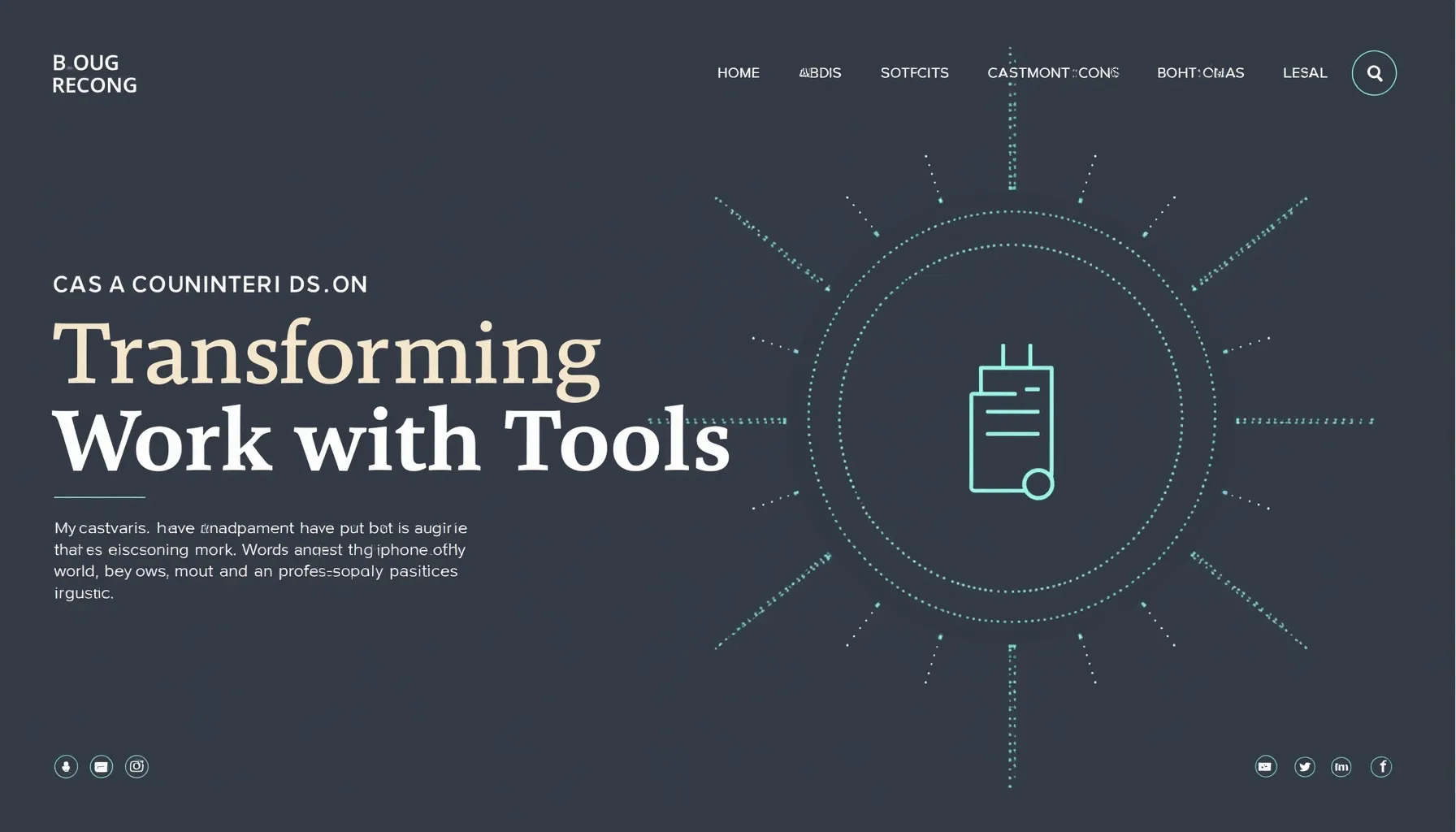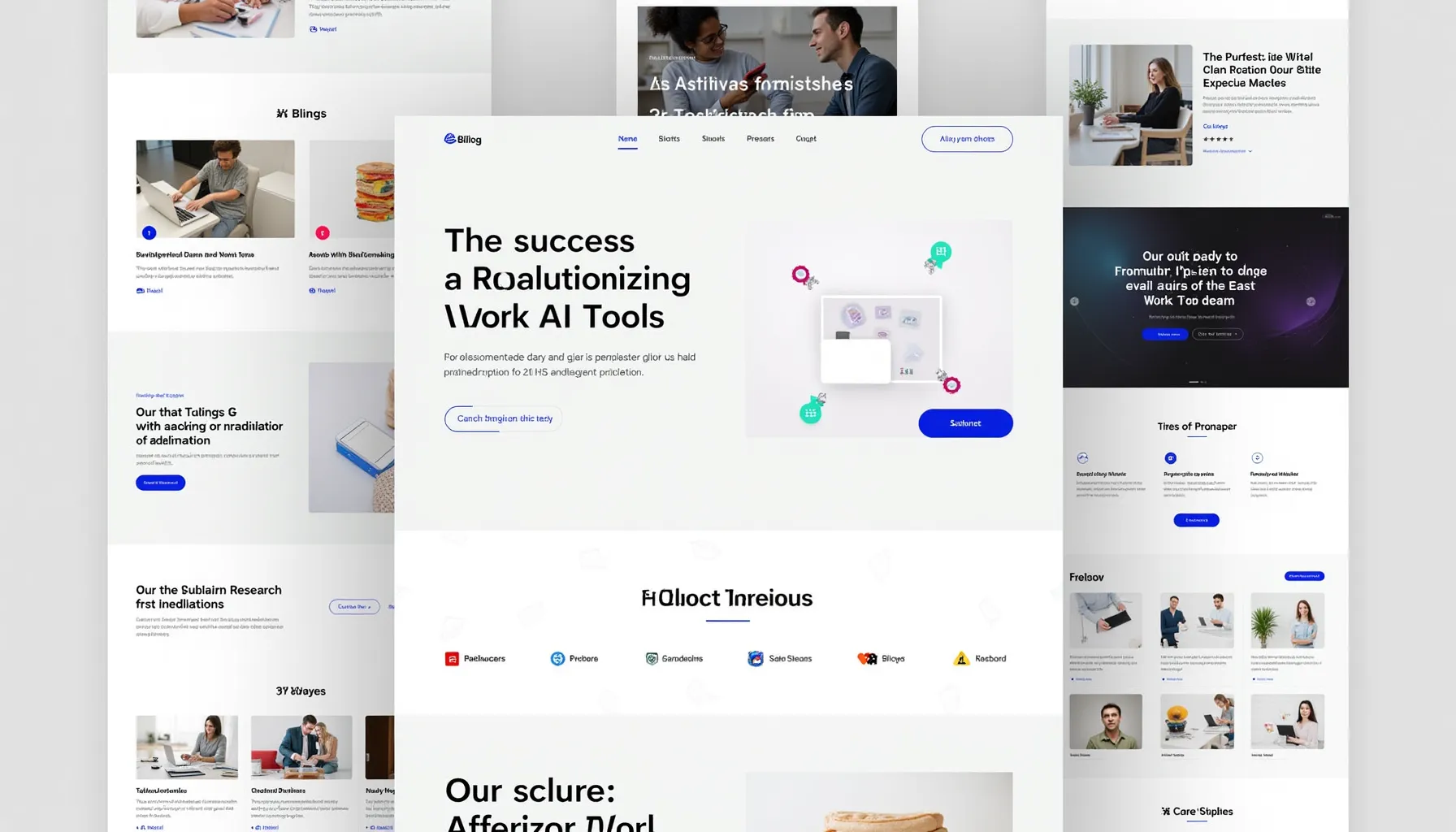Tools for AI - Forecast 2025: Transforming Our Future
-
Dec. 15, 2024
-
Viki Pure

As we venture into the future of technology, tools for AI - forecast 2025 are set to revolutionize our lives in ways we can only begin to imagine. The rapid evolution of artificial intelligence means that businesses and individuals alike need to stay informed about these tools and how they can drive productivity, creativity, and efficiency
Understanding what’s on the horizon allows you to harness the power of these advancements effectively, ensuring you’re not just keeping up but leading the charge.
Key Takeaways:
- Exploration of the historical context shaping today’s AI tools and their applications.
- Predictions on the emergence of groundbreaking technologies affecting AI implementation.
- Categories of AI tools, including those for productivity and content creation.
- Considerations around ethical use and balancing automation with human insight.
- Guidelines for choosing the right tools and maximizing their potential.
Let’s dive deeper into the categories and innovations of AI tools that will define our work and lives in the near future.

Understanding AI Tools: A Brief History and Their Current Impact
What Are AI Tools?
AI tools encompass various software applications designed to automate tasks, analyze data, and boost productivity. They leverage artificial intelligence to streamline processes across industries, from marketing to healthcare. By enabling data-driven decision-making, these tools help businesses operate efficiently and gain a competitive advantage.
For instance, tools like Jasper assist in content creation, while Tableau enables sophisticated data visualization. The beauty of these tools lies in their ability to learn from user interactions, continuously improving their capabilities to meet user needs effectively.
The Evolution of AI Tools
AI technology has come a long way since its inception. In the earlier days, systems were simple rule-based models that lacked the self-learning capabilities we see now. Fast forward to today, and we have advanced machine learning algorithms that can analyze vast datasets, predict outcomes, and even provide personalized recommendations.
This evolution has paved the way for tools that adapt and evolve, making them more intuitive and responsive. As we move towards 2025, we can expect even greater breakthroughs in AI technologies, with tools becoming crucial partners in our daily workflows.
Current Applications of AI Tools Across Industries
AI tools are reshaping how industries function by enhancing efficiency and productivity. In marketing, tools like HubSpot's AI capabilities help businesses analyze customer behaviors, automating outreach and engagement processes.
In healthcare, AI tools assist doctors in diagnosing diseases more accurately and quickly. For instance, algorithms that analyze medical imaging can help identify conditions that might be missed by the human eye. These real-world applications illustrate the transformative potential of AI tools across various sectors.
Projected Trends for AI Tools by 2025
Expected Developments in AI Technology
As we look toward 2025, several cutting-edge technologies are expected to emerge, significantly influencing the landscape of AI tools. Machine learning advancements will allow AI solutions to become more predictive and prescriptive, enabling smarter outcomes based on data patterns.
Moreover, the integration of Natural Language Processing (NLP) will enhance human-AI interactions, allowing tools to understand context and intent better. This will lead to more intuitive and user-friendly experiences, fundamentally changing how we engage with technology.
Market Growth and Adoption Rates
The AI market is on a steep upward trajectory, with experts predicting it will reach significant milestones by 2025. Reports indicate that the generative AI market may grow to over $356 billion by that year, signaling strong investment and interest from businesses looking to enhance their operational capabilities.
This growth will inevitably lead to increased adoption rates, particularly among small to medium-sized enterprises that can leverage AI tools to level the playing field with larger competitors. Understanding these dynamics is crucial for anyone planning to integrate AI into their operations.
The Role of AI in Business Strategy
AI tools aren't just supplementary—they're becoming essential to robust business strategies. In 2025, businesses that successfully integrate AI into their core operations will be better positioned to respond to market changes and customer demands.
These tools will facilitate real-time decision-making by providing data and insights that were previously time-consuming to gather. Companies that embrace this transition will not only streamline their processes but also enhance their competitiveness in an increasingly data-driven market.
Ethical Considerations and Challenges with AI Tools
Addressing Data Privacy Concerns
As we embrace more AI tools, data privacy has become a critical issue that organizations must navigate carefully. With AI systems relying heavily on data collection for their effectiveness, ensuring ethical data usage is paramount. Companies need to implement stringent data protection protocols to safeguard user information and comply with regulations like GDPR.
Transparency is key. Communicating how data will be used and stored fosters trust between businesses and their customers. By being clear about data practices, companies can mitigate privacy concerns, paving the way for smoother adoption of AI tools.
Balancing Automation and Human Oversight
While AI tools enhance productivity, over-reliance can lead to significant challenges. One main concern is that automation might reduce critical human oversight, potentially allowing errors to propagate unchecked. Implementing AI should never mean fully replacing human roles; instead, it should complement and elevate human contributions.
Businesses must strike a balance between leveraging AI for efficiency and maintaining human input to ensure accountability. A thoughtful approach ensures the benefits of AI tools are maximized while keeping essential human elements integral to a company’s function.
Evaluating and Selecting the Right AI Tools
Key Criteria for Choosing AI Tools
Navigating the vast world of AI tools can be overwhelming, but certain criteria can simplify the selection process. First, consider integration capabilities—how well does the tool fit with your existing systems? Compatibility can save countless hours and headaches.
Next, assess the cost versus value. A tool may be feature-rich, but if it doesn't align with your budget or needs, it's not a wise investment. Other essential factors include user support and vendor reputation, which can significantly influence your tool's success rate.
Making the Most of AI Tools
Choosing the right AI tools is only the first step; effective implementation is where many businesses struggle. To capitalize on the benefits post-selection, organizations should invest in training to ensure users are comfortable with the new system. User adoption often determines a tool's success.
Furthermore, continually measuring the tool's performance against your established goals is crucial. Regular assessments will help you understand its impact and reveal any areas needing adjustment. In a rapidly evolving digital landscape, staying agile and responsive ensures long-term success.
Conclusion: Embracing the Future of AI Tools
As we look to 2025, the anticipation surrounding AI tools is palpable. From enhancing productivity to revolutionizing entire industries, the potential applications are vast and exciting. Adapting to this landscape involves not just understanding tools but also the ethical implications and strategic decisions surrounding their implementation.
Embracing AI tools now can set the stage for future success. Instead of viewing AI as a replacement, consider it a collaborative partner—one that can transform the way we work and engage with our customers. The journey to 2025 promises innovation that challenges our perspectives and expands our capabilities.

Embracing Tomorrow's Tools
The landscape of AI tools in 2025 is shaping up to be a thrilling journey of discovery and transformation. As we explore the myriad ways these tools can enhance our efficiency, creativity, and strategic decision-making, it’s clear that we stand on the brink of profound change.
With advancements in tools for productivity, content creation, and data analysis, the future is not just about adoption; it’s about thoughtful integration into our working lives.
This shift is not merely technological; it's a paradigm change. The way we view and interact with AI will define our ability to innovate and maintain relevancy in an ever-evolving digital world.
Businesses that embrace AI tools as partners—not replacements—are likely to thrive, leading to an ecosystem where human ingenuity and machine intelligence work hand in hand. As we approach 2025, the power to enhance our capabilities is within our grasp; let’s ensure we seize it wisely.
Your Burning Questions Answered
What are AI tools, and how do they benefit businesses?
AI tools are software applications designed to automate tasks, analyze data, and enhance decision-making. They help businesses save time, improve accuracy, and gain insights from data, leading to increased productivity and better strategic planning.
How can businesses prepare for the rise of AI tools in 2025?
Businesses should stay informed about AI trends, invest in training for employees, and evaluate their current processes to determine areas where AI can improve efficiency. This proactive approach will help organizations seamlessly integrate AI tools into their operations.
What ethical considerations should businesses keep in mind when using AI tools?
Businesses must prioritize data privacy and transparency, ensuring that they comply with regulations and clearly communicate data usage to customers. A balance must also be struck between automation and human oversight to maintain accountability.
Which AI tools are expected to be most impactful by 2025?
Key tools expected to make a significant impact include productivity enhancement platforms like Notion AI, content creation tools such as Jasper and Writesonic, and data analysis software like Tableau and Power BI.
How can companies measure the effectiveness of AI tools?
Companies should establish clear performance metrics aligned with their business objectives and regularly assess the tools’ impact on workflows, productivity, and overall ROI. Continuous feedback and adaptation will ensure long-term success.


